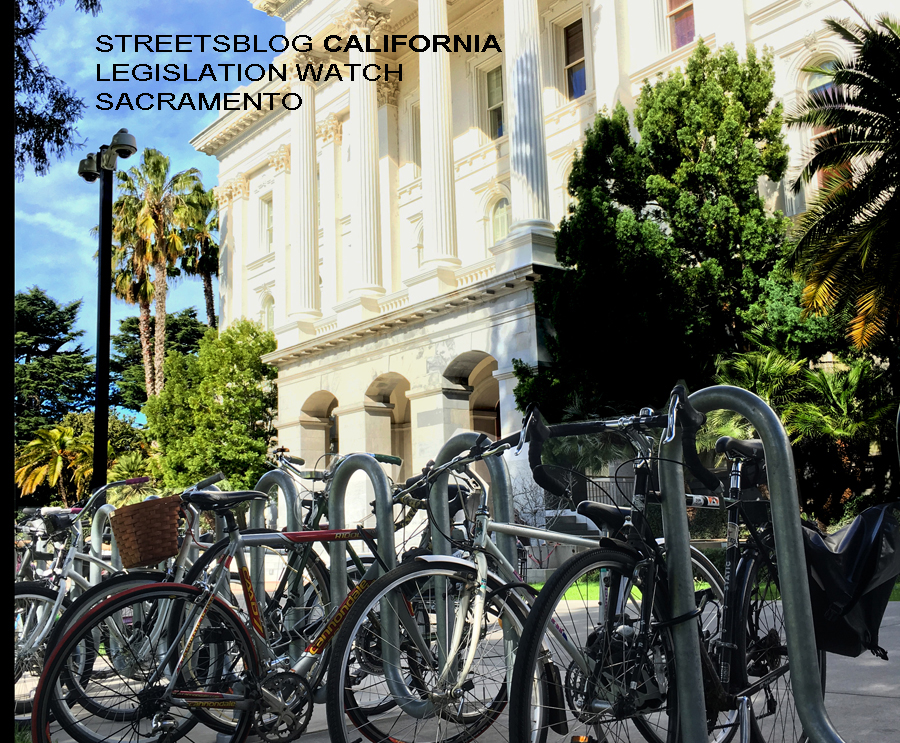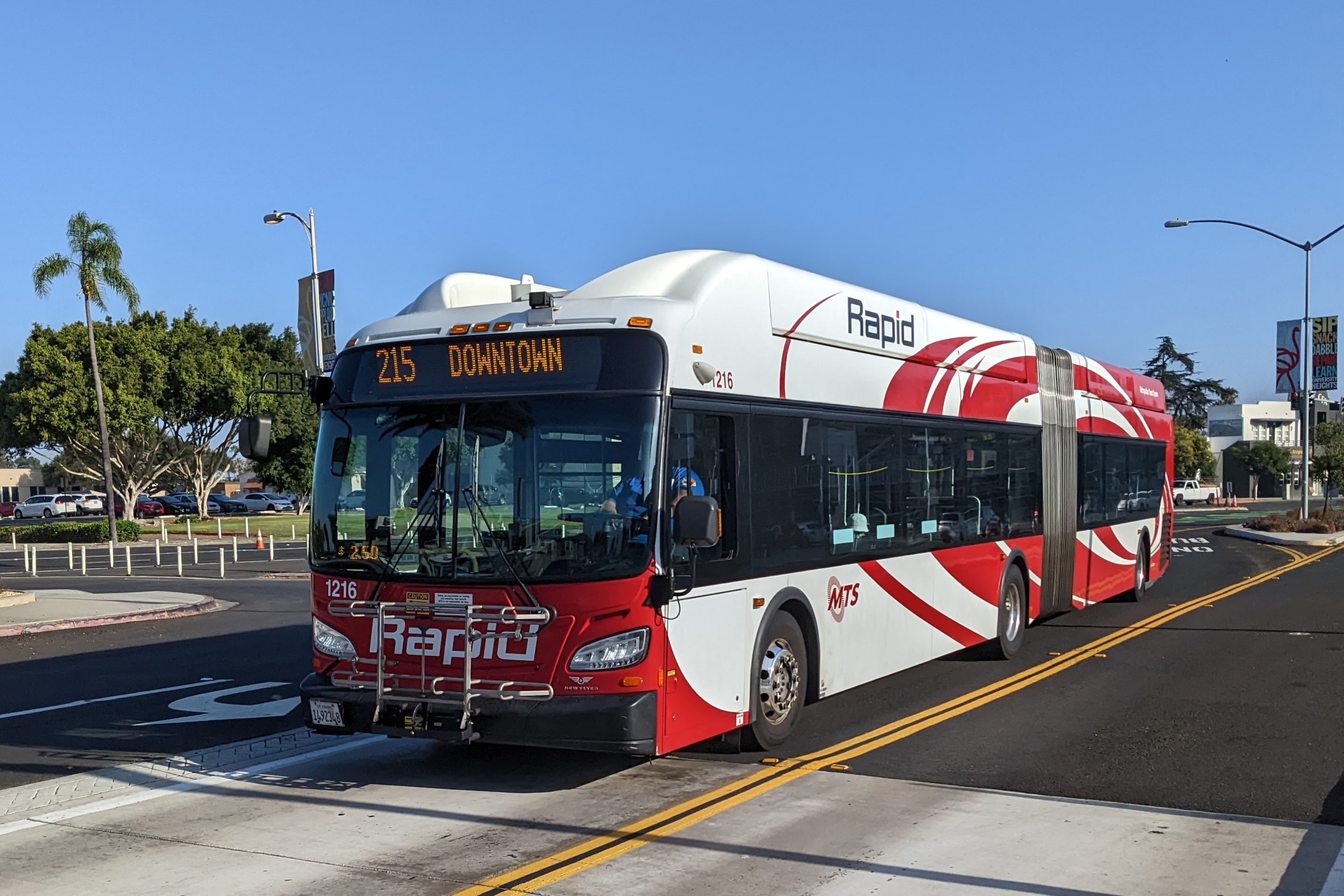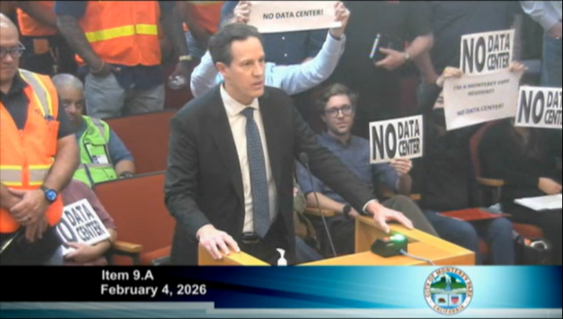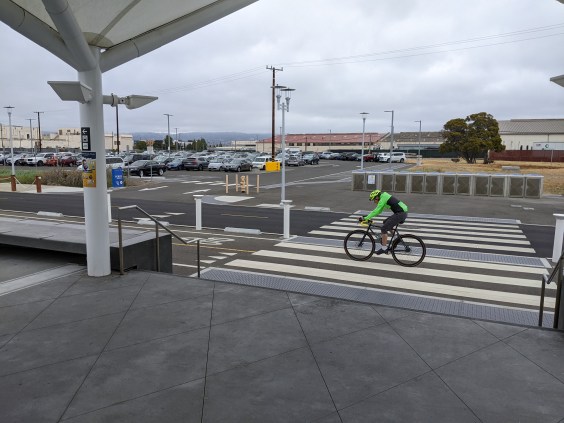Here's a quick peek at a few bills moving through the California legislative session before the Memorial Day Weekend.
Underutilized Intercity Bus Routes
Senator Ben Allen's S.B. 742 would correct an old law that hampers intercity bus service in California. Basically, it would allow passengers to buy a bus ticket on existing Amtrak bus routes without having to also buy a connecting train ticket. The original rule was put in place when Amtrak created bus feeder routes to give passengers throughout the state access to train service, and private bus companies complained that it was unfair competition.
But the Amtrak routes don't compete with long-range intercity bus services like Greyhound and Bolt; they generally serve other communities, and are frequently the only intercity transit serving rural residents. Currently, however, those residents have to have a train ticket in order to travel on the Amtrak bus routes, and those buses are frequently empty. Private bus companies should have stepped into the breach, but they haven't.
Managing and Regulating Micro-mobility
Micro-mobility options, such as scooters, has been both offering exciting new travel choices and bugging the heck out of cities that have been caught unprepared when this new travel option suddenly appears on their streets. Regulations are different in every city; some places have outright banned them, some have welcomed them; none are consistent.
Laura Friedman introduced A.B. 1112 to bring a semblance of sense to the crazy patchwork of regulations. The bill's impetus was to prevent overly restrictive regulations that effectively prevent scooter companies from operating but without actually imposing a ban. It also addresses the data the companies collect but have been stingy about sharing with cities. That is, the bill aims to get companies to share data with the cities where they operate, and is trying to find the right balance between collecting useful information and protecting privacy.
The bill has hit a few bumps along the way. The California Bicycle Coalition supported the overall goal of the legislation to develop consistent state regulations and prevent unreasonable limitations on the provision of scooters, recognizing they are important "as a low-cost, low-impact transportation option," according to a statement from the organization. "Properly managed, micromobility options like scooters can join walking, biking, and transit as the foundation of sustainable and equitable urban transportation systems." But, they add, if they are not "properly managed" all those potential benefits could be outweighed by drawbacks.
But CalBike and other advocacy organizations, among them CalWalks, Safe Routes National Partnerships, and Investing in Place, remain concerned that A.B. 1112 still gives too much flexibility and freedom to micro-mobility companies and takes away too much of a local jurisdiction's ability to regulate them.
"These companies are operating their business on the public right-of-way," CalWalks wrote in a letter to the legislature. "This bill would tie the hands of local jurisdictions from being able to impose fines and fees that could benefit communities and help increase opportunities for safe operation of these and other types of mobility. This bill also grants too much flexibility to scooter companies on where they can 'drop' scooters, and limits the local jurisdiction from regulating this practice in certain circumstances."
They are particularly concerned about one phrase in the bill, that says "a local authority shall not impose any unduly restrictive requirement on a provider, including requiring operation below cost."
They fear that this will allow operators to pick and choose which communities they wish to serve, and in the process leave out low-income areas that may benefit the most from having access to small, nimble, and environmentally friendly travel options.
This issue may go away with amendments in the Senate. A.B. 1112 has already passed the Assembly, and its next stop will be the Senate Transportation committee. It might also be assigned to the Judiciary committee, which handles questions of data and privacy in the Senate.
Development along the Orange Line BRT
Assemblymember Friedman has another bill that addresses an outdated corner of law: for historical reasons, the stations along the very busy Orange Line in the San Fernando Valley are not officially defined as "major transit stops." Or at any rate there is some question about whether they are or are not defined as such, so Friedman introduced A.B. 1560 to clarify the issue. The reason it's important is because L.A.'s voter-approved Measure JJJ provides incentives for development of affordable housing near high-quality transit, and the Orange Line, busy as it is, doesn't meet that definition. In addition,
new rules under CEQA streamline developments near frequently used transit, in keeping with state and other goals to increase transit use.
According to Assemblymember Friedman, “Bus rapid transit lines, like the Orange Line, serve as high-quality transit options to the same degree that light rail does. The communities surrounding them should have access to the same benefits. If we are going to be serious about solving the housing affordability crisis and remaining committed to our climate goals, then we are going to need to focus on bringing transit-oriented affordable housing online.”
AB 1560 passed the Assembly on a vote of 77-0 and will now goes to the Senate.






